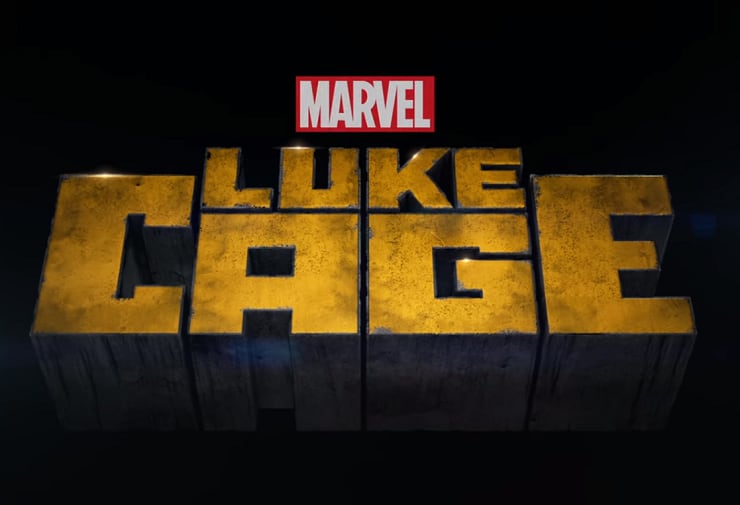The transfer of a Marvel comic book character such as Luke Cage onto television screens could have been terrible. Spinning out of the '70s Blaxploitation era of cinema, Cage as originally conceived — a bright yellow shirt and steel tiara-wearing, bulletproof super powered jive-talking street hero-for-hire — was as gaudy and one-dimensional as the films his stories paid homage to. His catchphrase was corny ("Sweet Christmas!"), his rogue's gallery was borderline racist, and the character basically loomed in relative unimportance, save for multiple redos over the decades. (He was a bit more self-aware in the '80s, hip-hop styled in the '90s, and an everyman urban hero in the early '00s). But a household name, Cage is not.
So for comic book nerds, to see Luke Cage in his own Netflix series — this after a solid intro in the Jessica Jones series — is a treat. The series doesn't shy away from his origins — there are goofy but necessary Easter eggs that call back his old look — and it updates his urban persona for the modern day in gritty style without veering into hokum. That's likely due to former hip-hop music scribe and now TV showrunner Cheo Hodari Coker's storytelling craft and reverence for the source material.
In Luke Cage, Mike Colter delivers a nuanced and stoic performance as the titular power man, and the initial seven episodes smoulder with a slick streetwise style that assesses race, class and identity in the context of the Marvel's Netflix Universe. We find a New York-based Cage in hiding — after the events of Jessica Jones — struggling to pay rent via low-paying jobs (including a Harlem barbershop that feels like every movie or show ever made with a black barbershop in it).
But as much as he tries to avoid it, trouble usually finds superpowered types; soon Cage is caught up in underworld battles, notably with a standout Mahershala Ali playing old comic book villain Cornell "Cottonmouth" Stokes. Here, Harlem is as much a part of the cast as the stellar players involved— among them rank the always reliable Alfre Woodard, Theo Rossi with a scene-stealing performance and the standout Simone Missick as Misty Knight — as the locale's history, culture and troubles are depicted here in cinematic style. The music also plays a key role here, with hip-hop playing a large part — down to the episode titles — and cameos by names such as Raphael Saadiq lend a hand towards the show's urban verisimilitude.
The storylines are at times abrupt and uneven, as the series attempts to tell its own stories while still fitting into the larger MCU narrative. Cage mostly plays in its own corner and own stakes but burnished reminders that he shares space with characters such as Daredevil come off rather clumpy. But the first half of the series are solid, with enough intrigue, action and social commentary to ensure that Luke Cage just might become a household name yet.
(Netflix)So for comic book nerds, to see Luke Cage in his own Netflix series — this after a solid intro in the Jessica Jones series — is a treat. The series doesn't shy away from his origins — there are goofy but necessary Easter eggs that call back his old look — and it updates his urban persona for the modern day in gritty style without veering into hokum. That's likely due to former hip-hop music scribe and now TV showrunner Cheo Hodari Coker's storytelling craft and reverence for the source material.
In Luke Cage, Mike Colter delivers a nuanced and stoic performance as the titular power man, and the initial seven episodes smoulder with a slick streetwise style that assesses race, class and identity in the context of the Marvel's Netflix Universe. We find a New York-based Cage in hiding — after the events of Jessica Jones — struggling to pay rent via low-paying jobs (including a Harlem barbershop that feels like every movie or show ever made with a black barbershop in it).
But as much as he tries to avoid it, trouble usually finds superpowered types; soon Cage is caught up in underworld battles, notably with a standout Mahershala Ali playing old comic book villain Cornell "Cottonmouth" Stokes. Here, Harlem is as much a part of the cast as the stellar players involved— among them rank the always reliable Alfre Woodard, Theo Rossi with a scene-stealing performance and the standout Simone Missick as Misty Knight — as the locale's history, culture and troubles are depicted here in cinematic style. The music also plays a key role here, with hip-hop playing a large part — down to the episode titles — and cameos by names such as Raphael Saadiq lend a hand towards the show's urban verisimilitude.
The storylines are at times abrupt and uneven, as the series attempts to tell its own stories while still fitting into the larger MCU narrative. Cage mostly plays in its own corner and own stakes but burnished reminders that he shares space with characters such as Daredevil come off rather clumpy. But the first half of the series are solid, with enough intrigue, action and social commentary to ensure that Luke Cage just might become a household name yet.
